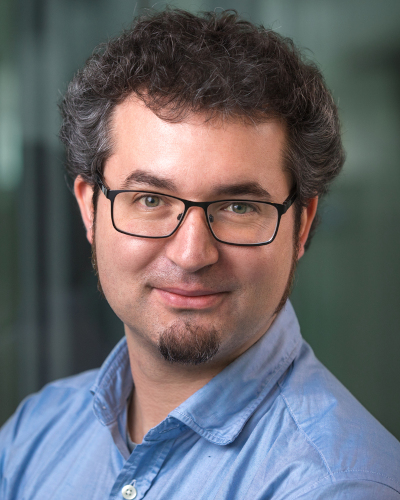

Table of contents
Curriculum vitae
|
2020–Present |
Research Assistant/Postdoctoral Scholar at the Institute of Mass Communication and Media Research, Division: International & Comparative Media Research, University of Zurich |
|
2020-Present |
Research Assistant at the Department of Computational Linguistics (Innosuisse Project ReAdvisor) |
|
2013-2020 |
Natural Language Software Engineer and Member of R&D at ARGUS der Presse AG |
|
2013-2017 |
PhD Student in the Research Project NCCR democracy (phase III, module 1, project 6) |
|
2012-2013 |
Research Assistant at the Department of Computational Linguistics, University of Zurich |
|
2012 |
Master of Arts UZH (lic.phil) in Mass Communication and Media Research, Computational Linguistics and Informatics at the University of Zurich. |
Links
Research Interests
Automated Media Content Analysis, Framing, Information Extraction and Classification, Political Communication, Social Media
Publications
ZORA Publication List
Download Options
Publications
-
Quantifying the Spread of Online Incivility in Brazilian Politics In: Proceeddings of the Nineteenth International AAAI Conference on Web and Social Media (ICWSM2025), Copenhagen, Denmark., 23 Juni 2025 - 26 Juni 2025. AAAI Press, 2241-2259.
-
Emotionalized Social Media Environments: How Alternative News Media and Populist Actors Drive Angry Reactions Political Communication, 41(4):559-587.
-
Benchmarking Automated Review Response Generation for the Hospitality Domain In: Workshop on Natural Language Processing in E-Commerce, Barcelona, Spain, 12 December 2020. Association for Computational Linguistics, 43-52.
-
Harmonization Sometimes Harms In: Proceedings of the 5th Swiss Text Analytics Conference (SwissText) & 16th Conference on Natural Language Processing (KONVENS), Winterthur, 23 June 2020 - 25 June 2020, swisstext-and-konvens-2020.
-
Using Lexical-Semantic Concepts for Fine-Grained Classification in the Embedding Space 2020, University of Zurich, Faculty of Arts.
-
Where the wind blows: five star movement’s populism, direct democracy and ideological flexibility Rivista italiana di scienza politica, 48(01):109-132.
-
SIFT – A language technology toolkit to assess the print media coverage of new forms of governance Working paper series / NCCR-Democracy 95, University of Zurich. NCCR-Democracy.
-
Legitimacy of New Forms of Governance in Public Discourse - An Automated Media Content Analysis Approach Driven by Techniques of Computational Linguistics In: PolText 2016. International Conference on the Advances in Computational Analysis of Political Text, Dubrovnik, 14 July 2016 - 16 July 2016, 1-7.
-
Sentiframes: a resource for verb-centered german sentiment inference In: Proceedings of the Tenth International Conference on Language Resources and Evaluation (LREC 2016), Portorož (Slovenia), 23 May 2016 - 28 May 2016. European Language Resources Association (ELRA), 1-4.
-
When do media report on parliamentary monitoring? In: PADEMIA Workshop ‘Rethinking Representation? The Changing Environment for Parliamentary Democracy’, Vienna, 26 March 2015 - 27 March 2015.
-
Measuring the public accountability of new modes of governance In: ACL Workshop on Language Technologies and Computational Social Science, Baltimore, MD, USA, 26 June 2014 - 26 June 2014, 38-43.
-
Measuring the Public Account- ability of New Modes of Governance In: ACL Workshop on Language Technology and Computational Social Science, Baltimore, Maryland, USA, 24 June 2014 - 26 June 2014.
-
SA-UZH: Verb-based Sentiment Analysis In: Proceedings of the 8th International Workshop on Semantic Evaluation (SemEval 2014), Dublin, Ireland, 2014. s.n., 503-507.
-
Inducing Domain-specific Noun Polarity Guided by Domain-independent Polarity Preferences of Adjectives In: Proceedings of the 5th Workshop on Computational Approaches to Subjectivity, Sentiment and Social Media Analysis, Baltimore, USA, 2014. Association for Computational Linguistic, 18-23.
-
Verb Polarity Frames: a New Resource and its Application in Target-specific Polarity Classification In: Proceedings of KONVENS 2014, Hildesheim, Deutschland, 2014. s.n., 106-115.
-
The Detection and Analysis of Bi-polar Phrases and Polarity Conflicts In: Proceedings of 11th International Workshop on Natural Language Processing and Cognitive Science, Venice, Italy, 2014 - 2014.